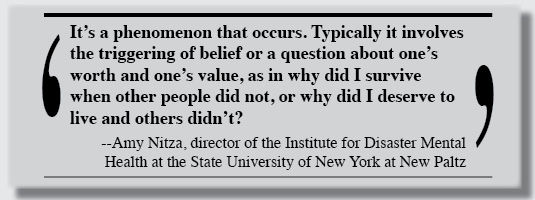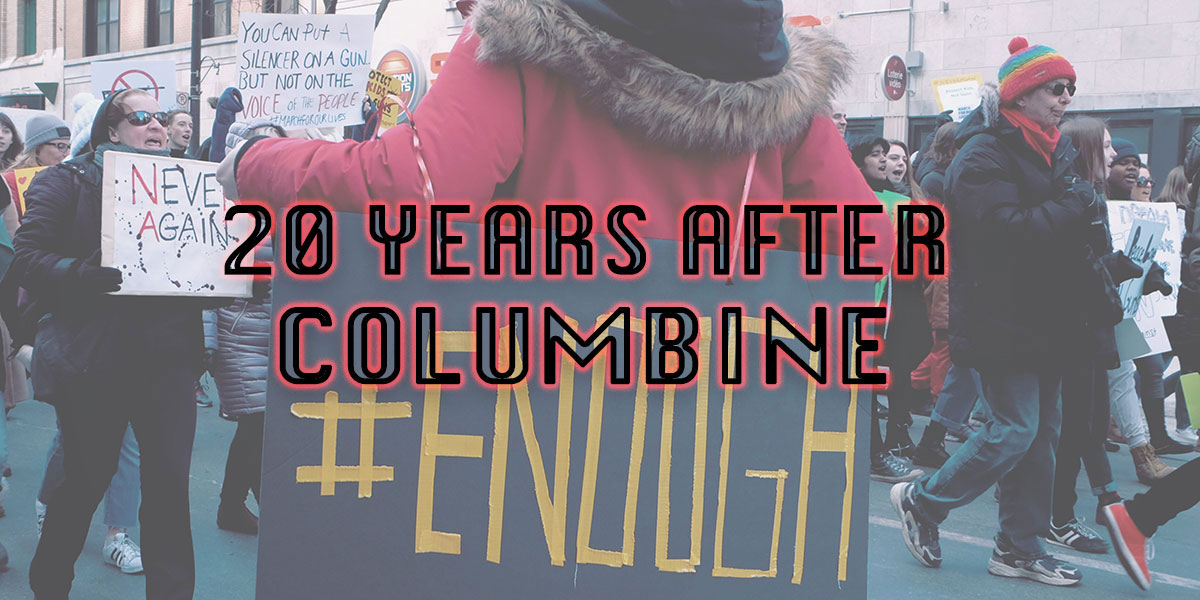— Part 8 of an 8-Part Series —
In the wake of traumatic events which result in loss, many survivors bear the weight, feeling as if they should have done more or suffered themselves. Recently, three suicides have made national news, as two were survivors of the Parkland High School shooting, and one a father of a Sandy Hook victim.
An estimated 28 percent of people who have witnessed a mass shooting develop a number of psychological disorders, specifically post traumatic stress disorder, or PTSD, and one-third develop acute stress disorder. School shootings come without warning, leaving survivors reeling and struggling to come to terms with the trauma. Those affected range from the survivors, who were present during the event, to the community and society as a whole. Recently, Sydney Aiello, survivor of the Parkland High School shooting, took her own life, followed by an unnamed student from Parkland High School. Aiello’s mother told USA Today that a friend of her daughter was one of the 17 victims, which left Aiello with anxiety within a classroom setting and PTSD. Families in the Parkland area were determined to make a plan to prevent any further suicide attempts in the community. An article from the The Washington Post said they came up with a new campaign called, “Just ask, and just listen,” that encourages parents to ask their children every day about mental health and suicidal thinking. Jeremy Richman, 49, father of Avielle, who was a victim of the Sandy Hook Elementary massacre and 6 years old at the time, made his mission understanding what triggers inside the brain, leading to violent actions. Following his daughter’s death, Richman started a non-profit organization called The Avielle Foundation to achieve his mission. Recently, Richman took his own life in Newtown, Connecticut, at The Avielle Foundation office. The weight felt by loved ones and victims is not often acknowledged because of the shame and helplessness survivor’s guilt can cause. Patience Carter, survivor of the Pulse nightclub shooting in Orlando, Florida, talked about the pressure of surviving: “The guilt of being grateful to be alive is heavy.” After the first anniversary of Columbine, survivors and loved ones grieved the loss from that day. Columbine High School’s star basketball player, Greg Barnes, 17, killed himself May 4, 2000, two weeks following the one-year anniversary. With a CD continuously playing a song that included the words, “I’m too depressed to go on,” Barnes hung himself in his garage after teachers said he was upbeat and bouncing in the school’s hallways just days before. Barnes witnessed the murder of Dave Sanders, Columbine High School teacher, and was friends with Matt Kechter, one of the 12 students killed on April 20. Many researchers focus their work on understanding the symptoms and response to survivor’s guilt after traumatic events. Arash Javanbakht, M.D., director of the Stress, Trauma and Anxiety Research Clinic at Wayne State University, conducts clinical work mainly focused on anxiety and trauma-related disorders. “Survivors may want to avoid the neighborhood where a shooting occurred or the context related to shooting, such as outdoor concerts if the shooting happened there,” Javanbakht said. Nearly 8 percent of the U.S. population is dealing with PTSD, and in school shootings, those affected by PTSD can reach up to 36 percent. Survivor’s guilt is not a diagnosis, according to Amy Nitza, director of the Institute for Disaster Mental Health at the State University of New York at New Paltz. “It’s a phenomenon that occurs. Typically it involves the triggering of belief or a question about one’s worth and one’s value, as in why did I survive when other people did not, or why did I deserve to live and others didn’t?” Nitza said. Survivor’s guilt is common among victims’ family members, and it’s often accompanied by a helpless outlook on daily tasks. Following a mass shooting, the community must be aware of those grieving around them. According to Psychology Today, time and thought are important in dealing with survivor’s guilt. While victims need time to reflect on the occurrence, it is important to remind them who is actually responsible.

